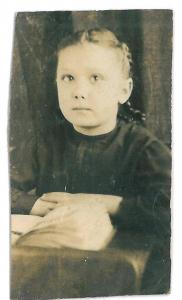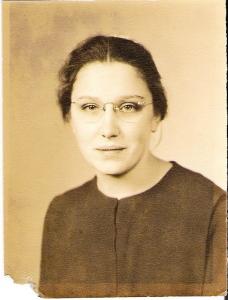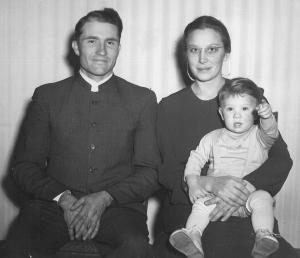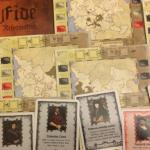I’m pleased to offer this guest post by my friend Jason Rhodes Showalter. –David
***
In his op-ed in the New York Times, Chris Reid describes why he and Colin Kaepernick “took a knee” during the national anthem last year. “[M]y faith moved me to take action,” he wrote. “I looked to James 2:17, which states, ‘Faith by itself, if it does not have works, is dead.’ I knew I needed to stand up for what is right…We chose to kneel because it’s a respectful gesture. I remember thinking our posture was like a flag flown at half-mast to mark a tragedy. It baffles me that our protest is still being misconstrued as disrespectful to the country, flag and military personnel.”
A recent poll, however, found that 40% of Americans agreed with the underlying sentiment of President Trump’s vulgarity-laced critique of the gesture, using words like “despicable” and “a disgrace” to describe anthem protests that have continued in recent weeks. In an act of counter protest, Vice President Pence left an Indianapolis Colts game early on Sunday after members of the opposing team knelt during the anthem, apparently following instructions from President Trump.
My extended family had its own brush with flag controversy. In 1928 my grandmother, Rhoda Swartzentruber, and 35 classmates were expelled from their local public elementary school for their refusal to participate in the daily flag salute and Pledge of Allegiance.[i] In the shadow of the Spanish-American War in 1898 New York became the first state to require flag salutes of public school students, and the patriotic fervor that followed WWI generated similar laws in other states. The requirement took effect in my Grandma’s home state of Delaware in 1925.

My grandmother was part of a small Anabaptist Mennonite congregation relatively new to the rural area surrounding the town of Greenwood. In search of a fresh start, her grandparents and several other families had moved there 20 years before. One member of the congregation, my grandmother’s maternal uncle, Nevin Bender, had been drafted during WWI, but refused to take up arms. Reporting for duty to Camp Meade, he faced an onslaught of derision and coercion designed to test the strength of his conviction, but local relationships in the Greenwood community remained positive during those years. Bender, in his late 20s at the time flag controversy and one of the pastors of the congregation, would play a significant role in negotiating the tensions with state and local officials.
Following the adoption of Delaware’s flag salute law, classroom teachers at the Greenwood Elementary School quietly overlooked for two years the Mennonite children’s refusal to participate. Then in early 1928 the local principal wrote to the State Superintendent of Public Instruction, Dr. H.V. Holloway, asking for guidance on the matter. Holloway asked the State Board to consider the situation during its next meeting on February 17. Learning that the issue was to be discussed, Bender requested permission to address the Board in the hope of gaining an exemption for the students. Bender later described the “unhappy situation” that two of the four Board members had little interest in hearing the Mennonite understanding, only whether they would comply with the law. Holloway confirmed Bender’s assessment that the Pledge indicated a willingness to defend the country with force, and the Board recommended that the principal first suspend and then expel any student who persisted in non-participation.

What followed was an exchange in the social media of the day: reports in two local newspapers of the discussion and the Board’s subsequent resolution, and a rebuttal by Bender by way of letter to the editor. In its edition the day after the board meeting, the Every Evening paper of Wilmington wrote that “school board officials made no effort to conceal their contempt for and impatience with those who cannot have reverence for the American flag.” Describing the precipitating event, the article noted that after being reprimanded for failing to salute the flag, the children “told their teachers their parents had taught them that it was a matter of conscience with them; that they were not allowed to salute the flag because it was an emblem of war; that they were a peace-loving people and believe only in that peace which comes from God…
“Members of the school board took issues with Rev. Bender and asked him if the American flag is not as much an emblem of peace as of war; they demanded to know if it was not in fact the only real emblem of peace and no matter what it stood for they wanted to know if every American did not owe it allegiance. They declared it is the emblem that protects Americans at home and abroad and as such they declared that it must be honored and respected …”
Bender, unhappy with the description of his community’s beliefs outlined in the article, wrote a letter to the editor of the Every Evening that was printed on February 28. “The article,” he wrote, “may be due either to misunderstanding or the correspondent having been misinformed … That the Mennonite people stand opposed to war is true…and that we feel unable to salute the flag is equally true, but not because of that for which the flag stands, not that of which it is an emblem of … since we honor and respect the American flag very highly; but primarily because in the pledge a promise is made, which … would be a violation of such scriptures as, ‘The weapons of our warfare are not carnal,’ 2 Cor. 10:4; ‘love your enemies,’ Matt. 5:44; ‘But I say unto you resist not evil,’ Matt 7:39; ‘For we wrestle not against flesh and blood,’ Eph. 6:12.
“We honor, we cherish, we love the American flag, the stars and stripes, we regard it as standing for the highest national ideals … If a private school is organized at this time, it will not be a matter of our own choosing, but because requirements would necessitate a violation of religious conviction, the freedom of exercise of which is one of the fundamental principles for which the American flag stands.” In defending his community’s understanding before the State Board, Bender even claimed, “If allegiance to the flag means that we are obligating ourselves to fight for it we cannot do it. If it means that we will be loyal citizens, we can…”
Following the expulsions, the congregation started a private school, but they continued to seek options for remaining in the public system. In 1929 the American Civil Liberties Union offered to represent the community in a legal case against the state, but Bender demurred because of Mennonite objection to filing suits in a court of law. In correspondence with the ACLU, Bender again made the link between the salute and a promise to use force: “We love peace, we desire to be true to the entire New Testament which we feel teaches nonresistance, also that we shall love our enemies, which make it impossible for us to take part in promoting war. Pledging allegiance to a flag as we see it, though we honor and respect it, at least implies a pledge to defend it against all its enemies, which would mean to resort to arms and to take human life.”

As late as 1931, they pursued legislative modifications to the law through influential Quaker contacts in the state. One proposal would have allowed the children to arrive 15 minutes late to school after the flag ceremony had occurred, but it was rejected following opposition from the American Legion, the local school board and some state officials.
Contemporary NFL anthem protests and the Delaware expulsions of 1928 are different in both tenor and substance, yet there are also parallels.
Participants in both situations carried out their acts of resistance from a position of non-coercive vulnerability. Reid and Kaepernick felt compelled to kneel as a sign of mourning for injustice perpetrated against communities of color, risking their professional positions. The Mennonite community faced the resulting public furor and financial burden of starting a private school, but only as a last resort.
While Reid and Kaepernick strategized to use their positions as high-profile professional athletes to spark public conversation about police brutality, the Greenwood Mennonites sought to avoid controversy as long as possible. The Mennonite community did not understand their actions to be a protest, but rather an effort to create public space for a qualified loyalty, a legal protection that would not exist until the Supreme Court ruling of 1943. Neither directly critiqued the US, per se, but rather cited reasons why they felt they could not give a salute under the circumstances. For the Greenwood Mennonites, it was that the flag ceremony implied a promise to use force in defense of the nation, and they appealed to the American ideal of the free exercise of religion in their defense. For Reid and Kaepernick, it was failures to live up to the American ideal of equal protection under the law for communities of color.

The contrast in both situations between the intended message and public perception was stark. Reid and Kaepernick’s stated goal of respectful critique has proven offensive to many. My Grandma’s faith community went to great lengths to explain their beliefs in a more favorable light at both local and state levels, but officials found their actions disrespectful and disloyal.
To be honest, I remain dubious of Reid and Bender’s apparent naïveté. Did Reid really think his actions wouldn’t be offensive in the current political climate? Did Bender really believe his community would be viewed as loyal citizens while refusing a pledge to take up arms against the nation’s enemies in post-WWI America? Whatever the case, both hit the wall of negative public perception and persevered in their conviction. In his letter to First Century Christians facing bad press and the threat of expulsion from Rome, the Apostle Paul offered this caveat-prefaced admonition: “If it is possible, as far as it depends on you, live at peace with all people.”
And when it’s not possible, take up your cross and carry on.
[i] The historical information and quotes from primary sources are taken from a history of the Greenwood Mennonite congregation: Huber, Harold. Through Eyes of Faith, 1974.
















